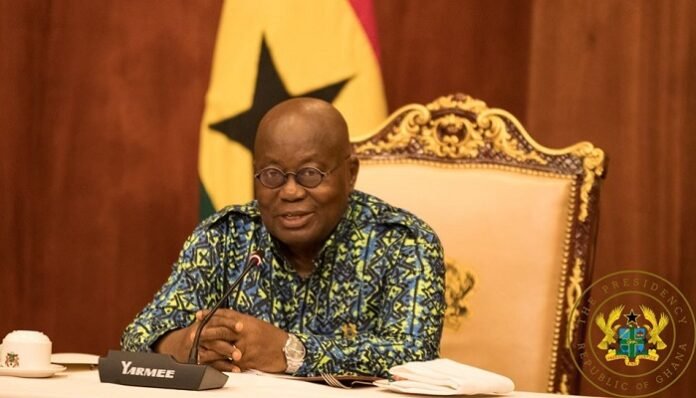
Anti-Corruption campaigner, Vitus Azeem, has said President Akufo-Addo cannot absolve himself from acts of corruption in his administration.
President Akufo-Addo says his government has undertaken, arguably, the boldest initiatives since independence to reform and strengthen the capacity of the nation’s institutions to tackle corruption in the public sector.
According to the President, “government has fought corruption not in words, but in concrete deeds. We have shunned mere exhortations and showy denunciations of unproved corruption. It has been a holistic approach.”
Delivering the keynote address at the National Anti-Corruption Conference, organized by the Commission for Human Rights and Administrative Justice (CHRAJ), on Friday, 10th December 2021, the President stated emphatically that “we have protected the public purse, we have made institutional reforms, we have enacted additional, requisite laws, and we have resourced more adequately the accountability organs of state. Our fight against corruption has been grounded on legislative, financial and institutional action, and not on lip-service.”
However, speaking to Naa Dede Tettey on Starr Today, Mr. Azeem questioned why the government is still pushing for some deals such as the ‘Agyepa’ and Arker Energy that Ghanaians have raised a number of questions on.
“It is very interesting, they always say talk is cheap but we always demand that there should be action to show and support what the person is saying. I think that the President’s definition of corruption may be different from the way I look at corruption.
“When you do things because you are in a certain position and those things are not proper. But you benefit personally, either personally, your family or your party. Those are acts of corruption. So for example if you decide to travel with an entourage of 40, 50 people for an event that needs 10 people, that is something, sometimes we define as corruption,” he reiterated.
Mr. Azeem further stated that the President cannot say he does not have prosecutorial powers and then fails to act on persons who are found culpable of some act of corruption.
“You are the appointing authority of some of the institutions he mentioned he can remove. If they are not working, he is supposed to remove them. Sometimes he tells them to do what he wants them to do. Or they make an investigation and they send it to you to act on. If you fail to act on it you cannot say it is not your duty,” he added.
Source: Ghana/Starrfm.com.gh/103.5FM/Isaac Dzidzoamenu

